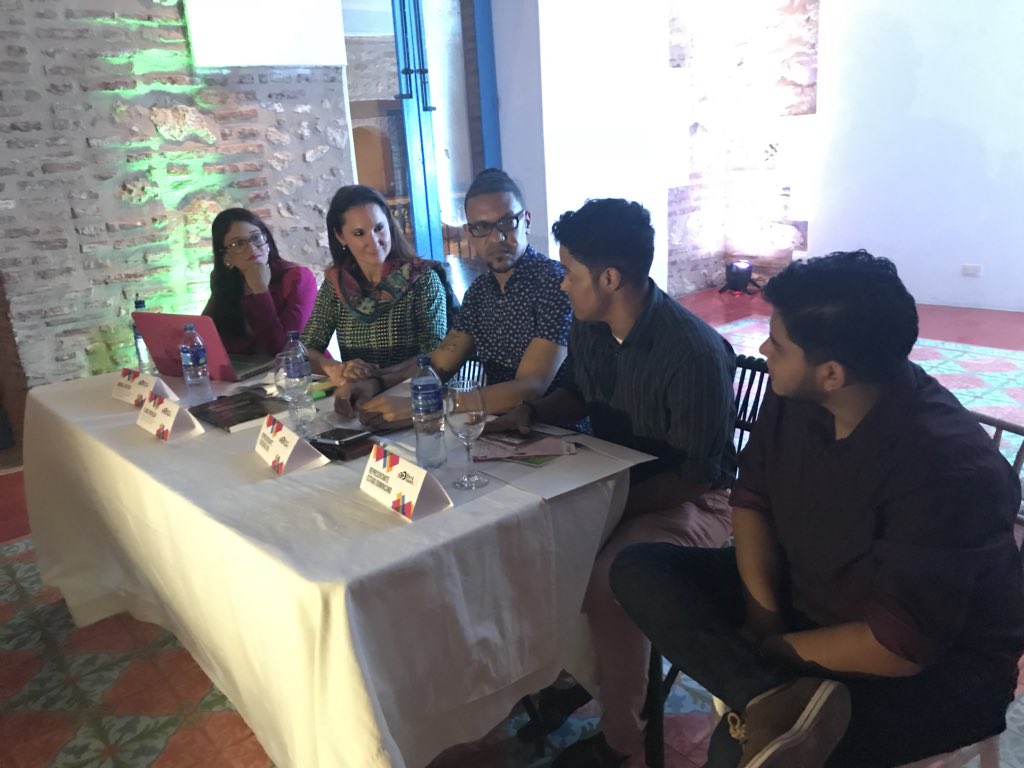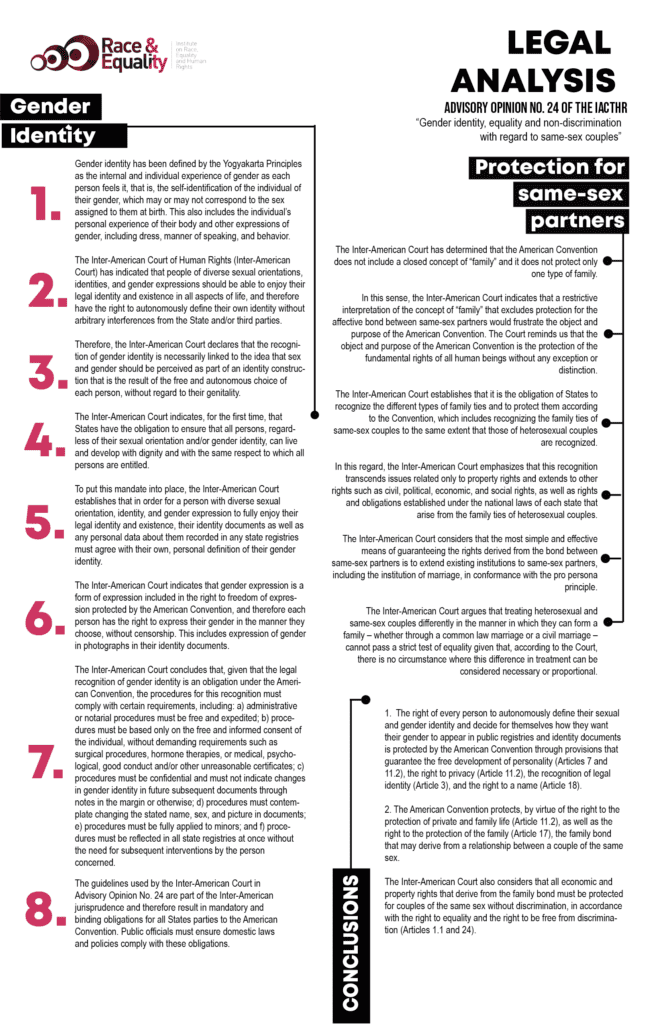Panel conversation on Advisory Opinion OC-24/17 of the Inter-American Court: “The key to eliminate discrimination is promoting equality. No one should be denied their rights on the basis of sexual diversity
“The right to self-identity and the free development of one’s personality is the most essential human right,” declared Flávia Piovesan – the Rapporteur on the Rights of Lesbian, Gay, Bisexual, […]

“The right to self-identity and the free development of one’s personality is the most essential human right,” declared Flávia Piovesan – the Rapporteur on the Rights of Lesbian, Gay, Bisexual, Trans, and Intersex (LGBTI) Persons for the Inter-American Commission on Human Rights (IACHR)– as she spoke during a public conversation on May 10 organized by the Institute on Race, Equality and Human Rights (Race and Equality) in Santo Domingo in the Dominican Republic. The event took place alongside the 168th Period of Sessions of the IACHR.
The purpose of the event was to discuss the judicial and political implications of Advisory Opinion OC-24/17 of the Inter-American Court of Human Rights, entitled “Gender identity, equality and non-discrimination with regards to same-sex couples,” for OAS member States. Representatives of LGBTI organizations from all over the region attended and shared concerns with the Rapporteur on the difficulties facing the LGBTI population. Among those present was Christian King, the Director of TRANSSA (“Trans Always Friends”), who reflected on the struggle of trans persons to exercise the free development of their personality in the Dominican Republic due to the constant discrimination they face. He also believes the DR must enact laws and public policies that guarantee equality for all people, including by providing for the legal recognition of all gender identities. Also present was Julio Jose Martinez, who is the founder of the group of trans men IMBERBE and leader of the Movement for Trans Men, who shared the following:
“In the Dominican Republic, trans men are basically invisible – they have no easy access to treatments that reaffirm their identity, unless they know someone, or they go to illegal places where they ‘self-medicate’ at their own risk. Any medical staff needs to be properly trained in how to administer these procedures and handle these situations. When attending check-ups with the gynecologist, I’ve been called by the name that appears in my identification card, despite strictly asking to be called by my name “Julio Jose.” This makes me receive even more strange looks from those present in the waiting room and causes me great embarrassment and humiliation.”
In this regard, Rapporteur Piovesan declared that “the most vulnerable group of people in society are distinctly trans people”.
Race and Equality’s Legal Consultant Mariel Ortega presented a legal analysis on Advisory Opinion OC-24 issued by the Inter-American Court. The Advisory Opinion addresses the legal recognition of gender identity and extending rights to same-sex couples. In her analysis, she emphasized that while guidelines for the legal recognition of gender identity postulated in OC-24 were drafted by the Court under its advisory capacity, the opinion is still a binding obligation that all States parties to the American Convention are required to comply with. This is because the Court was interpreting the American Convention and the opinion forms part of Inter-American corpus juris. States are obligated to ensure that their laws and policies comply with the opinion (see below infographic summarizing Advisory Opinion OC-24).
Rapporteur Piovesan stated that there are many challenges involved in the implementation of Advisory Opinion OC-24, signaling that the issuance of this opinion is just the beginning of a long process that requires the commitment of all social groups in order to achieve a real and effective realization of the principles in the opinion. In this regard, the Rapporteur highlighted that one of the key principles of the LGBTI Rapporteurship is to reject the criminalization of non-normative sexual orientations gender identities and expressions, in order to facilitate the creation of a path towards the implementation of the advisory opinion. “Criminalization fosters an environment of cruel violence, hostility and harassment – and generates conditions of human rights violations,” said the Rapporteur. Furthermore, she indicated that the one of the Rapporteurships’ main goals is to protect the rights of LGBTI persons and ensure that no one has less rights because of their sexual diversity. The key to ending discrimination is ensuring equality: “no one should be denied their rights to sexual diversity.”
Finally, the Rapporteur publicly pledged to work to ensure that States incorporate the guidelines discussed in the Advisory Opinion into their public policies and further expressed her full support for the LGBTI community to continue fighting for the acknowledgement of identities, autonomy, and free development of each person’s personality.


